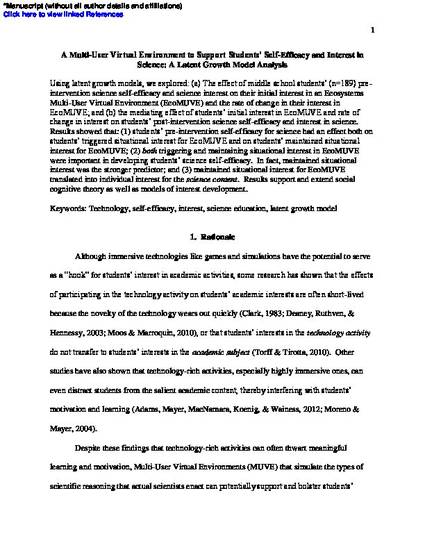
Using latent growth models, we explored: (a) The effect of middle school students’ (n=189) preintervention science self-efficacy and science interest on their initial interest in an Ecosystems Multi-User Virtual Environment (EcoMUVE) and the rate of change in their interest in EcoMUVE; and (b) the mediating effect of students’ initial interest in EcoMUVE and rate of change in interest on students’ post-intervention science self-efficacy and interest in science. Results showed that: (1) students’ pre-intervention self-efficacy for science had an effect both on students’ triggered situational interest for EcoMUVE and on students’ maintained situational interest for EcoMUVE; (2) both triggering and maintaining situational interest in EcoMUVE were important in developing students’ science self-efficacy. In fact, maintained situational interest was the stronger predictor; and (3) maintained situational interest for EcoMUVE translated into individual interest for the science content. Results support and extend social cognitive theory as well as models of interest development.
Available at: http://works.bepress.com/jasonchen/3/
